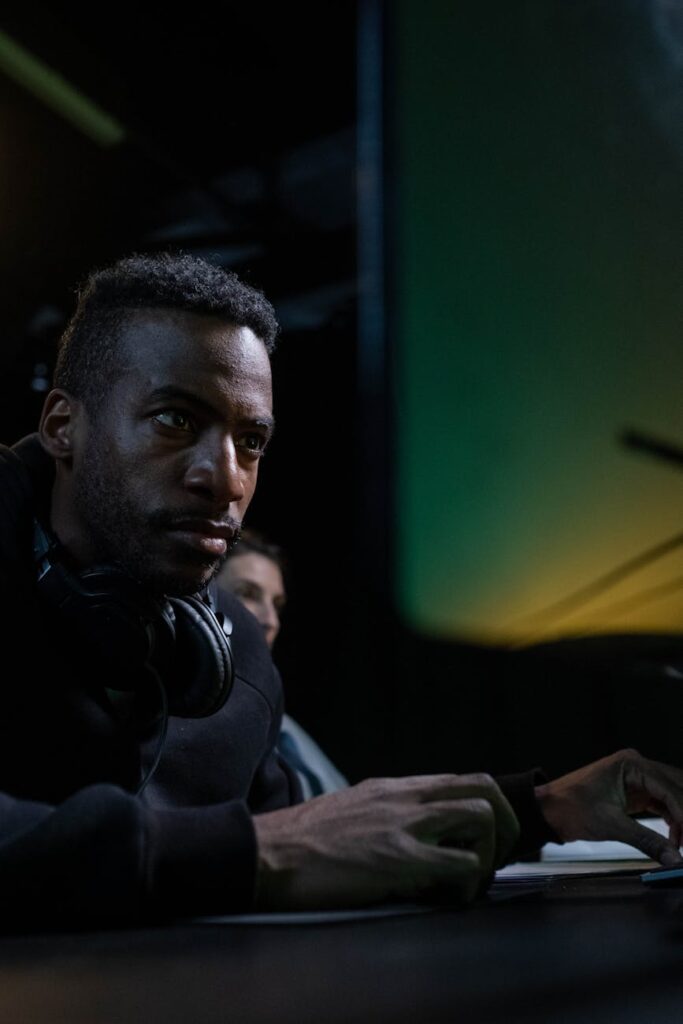The Great Unraveling: Why Your DAO Might Be a Legal Time Bomb
Imagine an organization with no CEO, no board of directors, and no physical headquarters. Instead, it’s run by a global community of members who vote on decisions using tokens on a blockchain. This isn’t science fiction; it’s the reality of Decentralized Autonomous Organizations, or DAOs. They promise a future of transparent, democratized, and borderless collaboration. And in many ways, they’re delivering.
But there’s a dark cloud looming on this bright horizon. While the technology has raced ahead, the law has been left panting in the dust. This has created a minefield of thorny legal challenges for DAOs and, more importantly, for you—their members. Participating in a DAO isn’t just about voting on proposals; it could unknowingly expose you to massive personal liability, unforeseen tax bills, and the wrath of securities regulators. It’s a scary thought. The very structure that makes DAOs so revolutionary—their decentralization and lack of a traditional corporate form—is also their greatest legal vulnerability.
Key Takeaways
- Default Legal Status is Dangerous: Most DAOs, by default, are treated as “general partnerships” by the law. This means every single member can be held personally responsible for the entire DAO’s debts and legal liabilities.
- Liability is Unlimited: Under a general partnership, your personal assets (house, car, savings) could be at risk if the DAO is sued or incurs debt, regardless of your level of involvement.
- Securities Law is a Major Hurdle: The SEC and other global regulators are increasingly viewing DAO governance tokens as unregistered securities, which comes with a mountain of regulatory compliance and potential penalties.
- Taxation is a Nightmare: The IRS hasn’t provided clear guidance on how to tax DAOs or their members, creating massive uncertainty around income, distributions, and reporting.
- Legal Wrappers are a Solution: Forming a legal entity, like a Wyoming DAO LLC or a traditional LLC, can provide a liability shield for members, but it introduces its own complexities and costs.

The Elephant in the Room: What is a DAO in the Eyes of the Law?
When you join a DAO, you’re not just joining a Discord server. You’re joining a group of people pooling resources for a common purpose. From a legal perspective, what does that make you? Unfortunately, the answer for most DAOs is terrifyingly simple: a general partnership.
The law loves putting things in boxes. If a group of people works together to make a profit and doesn’t formally incorporate as an LLC, a corporation, or another recognized entity, the law automatically defaults to calling them a general partnership. No paperwork is required. It just… happens. This is a structure designed for small, traditional businesses—think two friends opening a coffee shop. It was never intended for a pseudonymous, global collective of thousands managing millions of dollars in crypto assets.
The Unincorporated General Partnership Problem
Why is this default classification so bad? It boils down to one horrifying legal concept: joint and several liability. This means that each partner (i.e., each DAO member) is 100% liable for 100% of the partnership’s debts and obligations.
Let that sink in.
If a DAO gets sued for a billion dollars, the winning party doesn’t have to go after every member for their tiny share. They can pick one member—perhaps the one with the deepest pockets they can identify—and legally pursue them for the entire amount. That member would then have the unenviable task of trying to sue all the other thousands of pseudonymous members to recoup their losses. Good luck with that.
This isn’t just a theoretical risk. The Commodity Futures Trading Commission (CFTC) successfully sued Ooki DAO, arguing it was an unincorporated association of token holders. The court agreed and allowed the CFTC to serve the entire DAO by posting the lawsuit in an online forum. This set a chilling precedent: regulators can and will find ways to hold decentralized groups accountable.
The Triple Threat: The Core Legal Challenges for DAOs
The general partnership issue is the foundation upon which the other major legal challenges are built. These challenges generally fall into three buckets: liability, securities regulation, and taxation.
1. The Specter of Unlimited Personal Liability
We’ve touched on this, but it’s worth drilling down. What kind of things could a DAO be liable for? The list is long and varied:
- Contract Disputes: The DAO enters into an agreement with a service provider who doesn’t get paid. The provider can sue the DAO and, by extension, its members.
- Intellectual Property Infringement: The DAO uses a copyrighted logo or name without permission.
- Hacks and Exploits: A vulnerability in the DAO’s smart contract leads to a loss of user funds. While smart contract audits help, they aren’t foolproof. Victims could argue the DAO members were negligent.
- Regulatory Fines: As seen with the Ooki DAO case, regulators can impose massive fines for non-compliance.
Every time you vote with your governance tokens, you are actively participating in the management of this “partnership.” This act of participation strengthens the argument that you are a general partner and are therefore on the hook, legally and financially, for the consequences of those votes. It’s a far cry from the passive investment of buying a public stock.

2. Are DAO Tokens Unregistered Securities?
This is the question keeping crypto lawyers up at night. In the United States, the SEC uses a decades-old legal framework called the Howey Test to determine if something is an “investment contract” and therefore a security. If it is, it must be registered with the SEC or qualify for an exemption. Most crypto assets don’t do this.
The Howey Test has four prongs:
- An investment of money
- In a common enterprise
- With the expectation of profit
- To be derived from the efforts of others
It’s easy to see how a DAO governance token could fit this mold. People buy tokens (investment of money) in a DAO (common enterprise) hoping the value of the token will increase (expectation of profit) due to the work of the core developers and active community members (efforts of others). SEC Chair Gary Gensler has repeatedly stated that he believes most crypto assets are securities. If a DAO’s token is deemed a security, the DAO and its founders could face severe penalties for issuing unregistered securities. It also places a huge compliance burden on any platform that lists the token for trading.
This uncertainty creates a chilling effect. DAOs are forced to walk a tightrope, trying to build valuable projects without looking too much like a traditional company raising capital, all while the regulatory goalposts keep shifting.
3. The Tax Man Cometh, But He’s Confused
If the securities question is murky, the tax situation is a full-blown fog. The IRS has provided very little specific guidance for DAOs. This leaves everyone guessing on fundamental questions:
- Is the DAO itself a taxable entity? If it’s a partnership, then yes. A partnership doesn’t pay taxes itself, but it must file an informational return (Form 1065), and the income or loss is “passed through” to the partners (members).
- How do you calculate a member’s share? How do you issue a K-1 tax form to thousands of pseudonymous wallet addresses? It’s an administrative nightmare.
- When is a taxable event triggered? Is it when the DAO earns income? When it distributes tokens to members? When a member receives an airdrop? When they sell a governance token? The answer is likely “all of the above,” but the specifics are dangerously unclear.
- How is treasury appreciation taxed? If a DAO’s treasury, holding ETH, doubles in value, has the DAO realized a gain? Do the members owe tax on that unrealized gain?
This lack of clarity is a massive operational headache and another source of potential liability. Failing to comply with tax law, even out of ignorance, can lead to severe penalties and interest.
Navigating the Murky Waters: Potential Solutions and Legal Wrappers
So, is it all doom and gloom? Not entirely. The community is smart, and lawyers in the space are working hard on solutions to mitigate these risks. The path forward involves a combination of innovative legislation, smart legal structuring, and robust internal governance.
The Rise of DAO-Specific Legislation (Hello, Wyoming!)
Some jurisdictions are leaning into the challenge. Wyoming, in 2021, became the first state to pass a law giving DAOs a specific legal status: the DAO LLC. This structure provides the limited liability benefits of a traditional LLC while allowing for governance via smart contracts and tokens. It’s a huge step forward because it gives DAO members a liability shield. They are no longer general partners; they are members of an LLC, and their personal assets are protected.
Other places like Switzerland, Liechtenstein, and the Marshall Islands have also created forward-thinking legal frameworks. Choosing a jurisdiction and formally incorporating as a legal entity—often called a “legal wrapper”—is becoming the gold standard for DAOs that want to operate safely and interact with the traditional world (e.g., signing contracts, opening bank accounts).
Using Traditional Entities as Wrappers
Even without DAO-specific laws, many projects are using existing structures. A DAO might be ‘wrapped’ in a traditional LLC or a foundation (like the Cayman Islands Foundation Company, a popular choice). This entity can hold the treasury, enter into contracts, and shield members from liability. The challenge here is ensuring the entity truly serves the decentralized DAO and doesn’t just become a centralized point of control and failure.

Operational Best Practices
Beyond legal wrappers, DAOs can take internal steps to protect themselves:
- Clear Governance Documents: Having well-written and publicly accessible terms of service, operating agreements, or a DAO constitution can clarify the roles, responsibilities, and liabilities of members. It can explicitly state that participation does not form a partnership. While not a perfect shield, it’s better than nothing.
- Limiting Liability by Contract: When dealing with vendors or partners, the DAO’s legal wrapper can sign contracts that explicitly limit liability to the assets held by the entity.
- Insurance: Directors and Officers (D&O) insurance is becoming available for crypto projects, which can protect key contributors from legal costs.
- Careful Tokenomics Design: Designing tokens to have clear utility within the ecosystem, rather than just being speculative investments, can help mitigate the risk of them being classified as securities.
Conclusion: A Call for Clarity and Caution
DAOs represent a profound shift in how humans can organize and build together. Their potential is immense. But we can’t ignore the fact that they are currently being built on shaky legal ground. The doctrine of “code is law” is a powerful idea, but in reality, it’s the law of the land that has the final say—and the power to put people in jail or seize their assets.
For the space to mature, we need more regulatory clarity, more innovative legal structures like Wyoming’s, and a greater awareness among participants of the risks involved. If you’re a DAO member, this isn’t meant to scare you away. It’s meant to arm you with knowledge. Ask hard questions in the DAOs you’re in. What is our legal structure? How are we mitigating member liability? What’s our plan for taxes? Pushing for these answers doesn’t make you a skeptic; it makes you a responsible builder of this new, decentralized future. The wild west phase of DAOs is fun, but it can’t last forever. The time to build a sustainable and legally sound foundation is now.
FAQ
1. If I just vote on a few proposals in a DAO, am I really considered a ‘general partner’?
Unfortunately, yes, that is the risk. In the absence of a formal legal structure, courts may see any active participation in governance and management—which includes voting—as evidence of a partnership relationship. The level of your involvement might affect the outcome, but the risk of being classified as a partner is very real, even for casual participants.
2. What is the single most important thing a DAO can do to protect its members?
The single most important step is to adopt a formal legal wrapper. By setting up an entity like a Wyoming DAO LLC, a traditional LLC, or a foundation in a favorable jurisdiction, the DAO creates a liability shield. This shield separates the DAO’s legal identity and debts from the personal assets of its individual members, fundamentally changing the risk profile from unlimited personal liability to something much more manageable.
3. Does being anonymous or pseudonymous protect me from liability?
It might make it harder for authorities to find you, but it is not a foolproof protection. Blockchain forensics is a rapidly advancing field, and regulators are becoming more sophisticated at deanonymizing participants. As seen in the CFTC’s case against Ooki DAO, regulators are willing to use creative methods to pursue decentralized groups. Relying on pseudonymity alone is an incredibly risky and unsustainable legal strategy.


